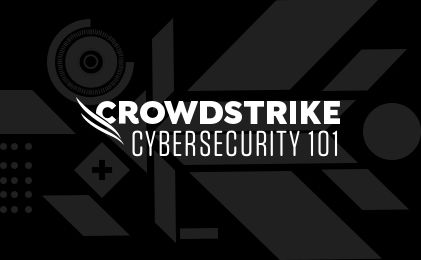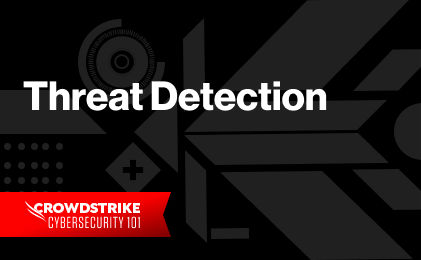Our growing reliance on the internet has resulted in a sharp rise in sophisticated cyberattacks. More of our business, financial, and medical data exists online than ever before. For many, devices serve both personal and professional purposes, making cyber hygiene essential for preventing sensitive data from falling into the wrong hands.
Cyberattacks can have catastrophic consequences for businesses and individuals, including financial losses from theft or ransomware, reputational damage leading to the loss of customer trust, potential legal and regulatory issues from data breaches, and operational disruptions.
Individuals may also experience identity theft, financial fraud, emotional distress, and loss of personal information. These impacts highlight the critical importance of practicing good cyber hygiene to protect against the constantly evolving spectrum of cyber threats.
This article explains cyber hygiene, its benefits, practical tips for good cyber hygiene, and common pitfalls to avoid.
What Is Cyber Hygiene?
Cyber hygiene refers to the practices computer users adopt to maintain the safety and security of their systems in an online environment.
Practicing cyber hygiene offers numerous benefits, including:
- Reducing the risks and consequences of cyber attacks.
- Promoting customer trust.
- Reducing costs and downtime.
- Inhibiting unwanted access to systems.
- Improving the overall security posture.
- Reducing the likelihood of data breaches.
- Enhancing productivity and efficiency by minimizing interruptions and expenses due to cyber attacks.
While cyber hygiene and cybersecurity are similar concepts, their scope and focus differ. Cyber hygiene focuses on preventative methods for system health and security, whereas cybersecurity encompasses a holistic strategy for preventing, detecting, and recovering from cyberattacks.
Tips for Implementing Good Cyber Hygiene
Cyber hygiene is a collection of good practices that can be broken down into the following categories.
Password Management
Creating secure passwords is critical for protection against cyberattacks. Strong passwords should be at least 12 characters long, with a mix of alphanumeric and special characters. To reduce the danger of hacks, avoid easily guessable information and use unique passwords for each account.
Effective practices for password management include:
- Avoiding password sharing
- Updating passwords regularly
- Utilizing trusted password managers
Software Updates
Cybercriminals exploit vulnerabilities in outdated software versions to gain unauthorized access, steal information, or initiate unwanted actions.
Software updates are therefore critical for maintaining cyber hygiene — they patch vulnerabilities, correct issues, and ensure optimal performance. By keeping your software up to date, you’re protecting your systems, networks, and data against vulnerabilities and security breaches.
Here are some recommended practices:
- Setting updates to run automatically
- Checking that updates come from reputable sources
- Replacing obsolete or unsupported software
Antivirus and Firewall Protection
Antivirus software and firewalls detect, prevent, and remove malware and act as a barrier against unauthorized access to networks and systems. Traditional antivirus applications, cloud-based antivirus, as well as hardware and software firewalls, are among the several types of protection available.
Remember to:
- Keep your antivirus and firewall software up to date
- Combine it with the cybersecurity measures mentioned above — frequent software updates and secure passwords
Email Security
Phishing and spam emails are common cybersecurity hazards, but they can also be mitigated by good cyber hygiene practices.
Phishing emails trick users into disclosing sensitive information or engaging in dangerous behavior, whereas spam emails flood inboxes with unwanted communications, commonly carrying malicious links or files.
Some best practices for email security include:
- Being cautious with attachments and links
- Not opening suspicious emails
- Using strong passwords
- Activating multi-factor authentication (MFA)
- Keeping email software up to date
- Employing email filtering and anti-spam technologies
- Providing email security education and awareness programs to users
7 Common Cyber Hygiene Mistakes to Avoid
By avoiding some common cyber hygiene mistakes, you can lessen your susceptibility to many cyber threats.
1. Reusing Passwords
Reusing a password increases your vulnerability to cyber attackers. Once they’ve guessed or otherwise cracked the password, multiple online accounts may be compromised. To avoid this, use unique and strong passwords for each of your accounts. This is also where a password manager comes in handy, as it can be used to generate and store complex passwords securely.
2. Using Outdated or Unsupported Software
Using outdated software might expose systems to known security flaws, raising the risk of cyberattacks. Remember to regularly update and patch all your software and programs.
3. Not Using Antivirus Software and Firewalls
Antivirus software detects, prevents, and removes malware, whereas firewalls protect networks and systems from illegal access. Both aid in maintaining a robust defense against cyberattacks.
4. Clicking on Links or Attachments in Suspicious Emails
These links or attachments may contain malware or phishing attempts. It's essential to exercise caution and avoid opening unknown links or suspicious attachments in emails to protect yourself and your data from possible cyber threats.
5. Using Unsecured Wi-Fi Networks in Public Places
Cyberattackers can easily exploit unsecured Wi-Fi networks to gain unauthorized access to your devices. It's crucial to avoid using such networks in public places and instead use trusted networks to ensure the security of your online activities.
6. Failing to Back Up Your Data on the Cloud
Regularly creating backups on the cloud ensures a secure and accessible copy of your data, protecting it from potential loss and permitting easy recovery in case of an incident.
7. Granting Excessive Permissions to Users
Adopt the Principle of Least Privilege, providing users with the minimal amount of permissions necessary for their specific job roles, to minimize the potential for misuse or abuse of privileges and to reduce your attack surface.
Conclusion
Cyber hygiene is an essential practice that individuals, organizations, and governments should adopt for protection against the ever-increasing threat of cybercrime. Keep in mind that it’s an ongoing effort that requires regular attention and awareness. By prioritizing cyber hygiene, individuals and organizations can reduce their risk of falling victim to cyberattacks and safeguard their sensitive information.







